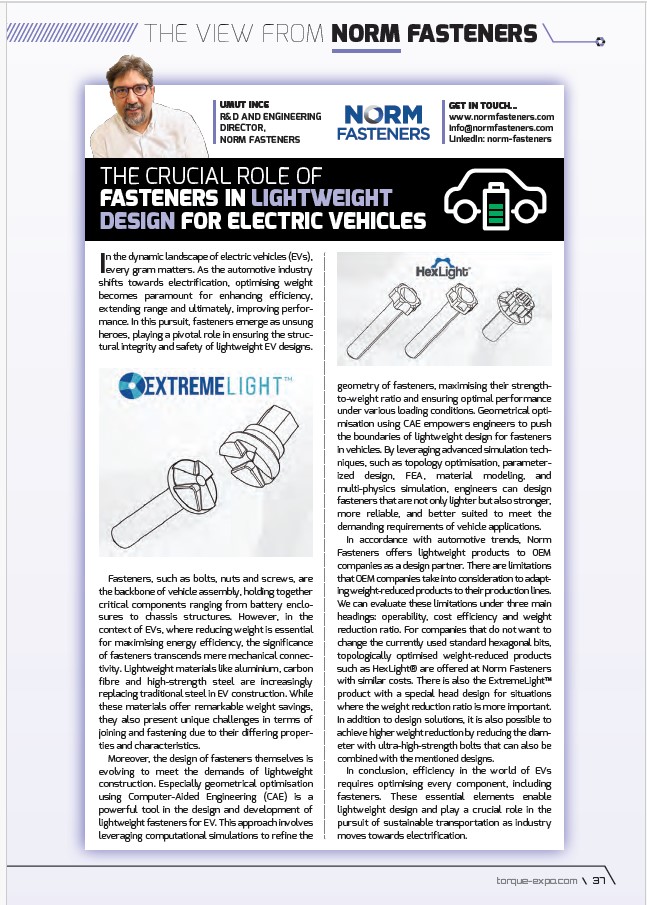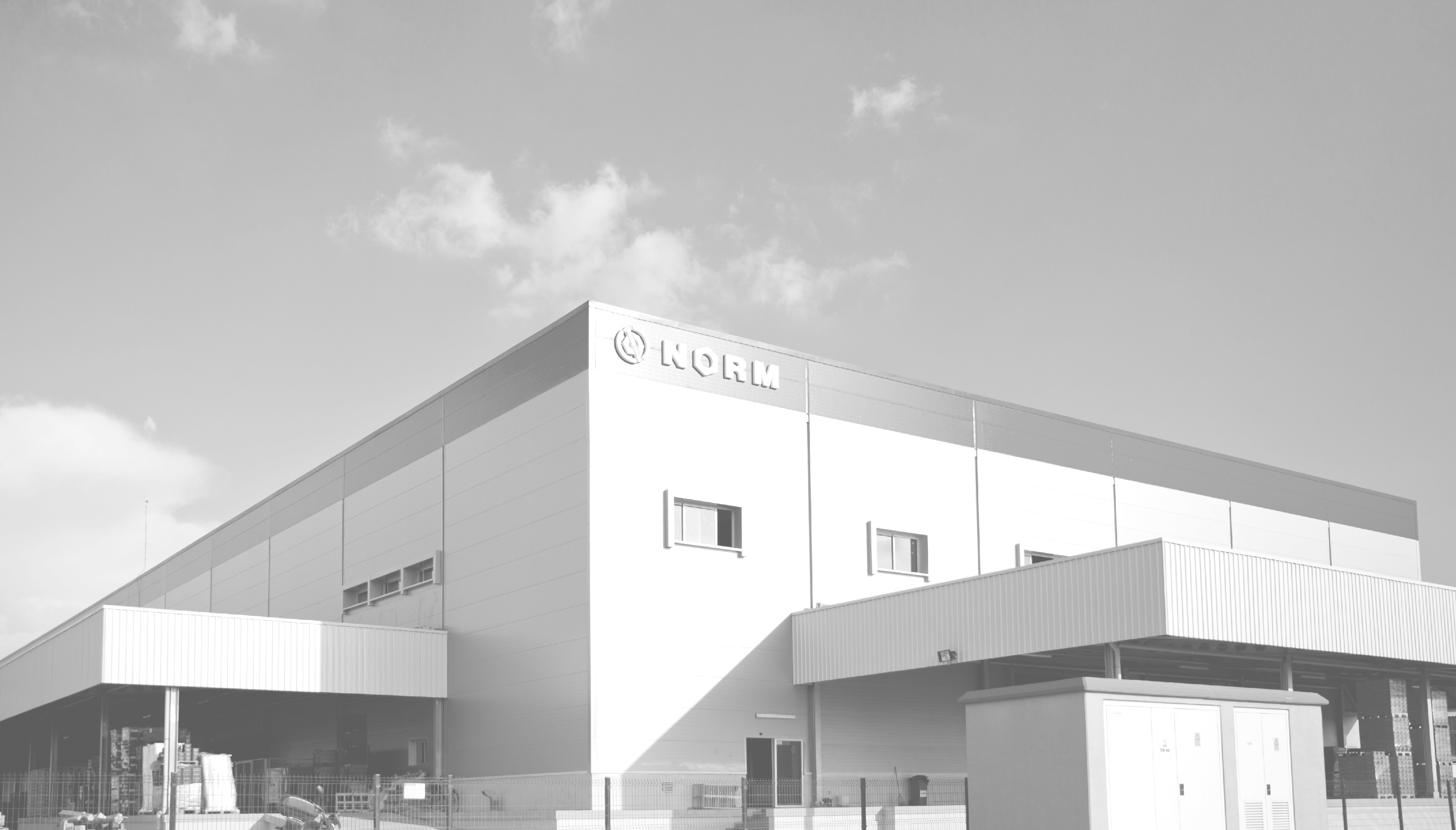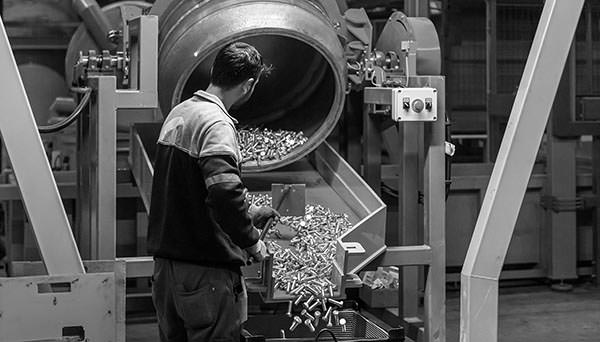THE CRUCIAL ROLE OF FASTENERS IN LIGHTWEIGHT DESIGN FOR ELECTRIC VEHICLES
1 May, 2024
In the dynamic landscape of electric vehicles (EVs), every gram matters. As the automotive industry shifts towards electrification, optimising weight becomes paramount for enhancing efficiency, extending range and ultimately, improving performance.

In the dynamic landscape of electric vehicles (EVs), every gram matters. As the automotive industry shifts towards electrification, optimising weight becomes paramount for enhancing efficiency, extending range and ultimately, improving performance. In this pursuit, fasteners emerge as unsung heroes, playing a pivotal role in ensuring the structural integrity and safety of lightweight EV designs.
Fasteners, such as bolts, nuts and screws, are the backbone of vehicle assembly, holding together critical components ranging from battery enclosures to chassis structures.
However, in the context of EVs, where reducing weight is essential for maximising energy efficiency, the significance of fasteners transcends mere mechanical connectivity. Lightweight materials like aluminium, carbon fibre and high-strength steel are increasingly replacing traditional steel in EV construction. While these materials offer remarkable weight savings, they also present unique challenges in terms of joining and fastening due to their differing properties and characteristics.



























